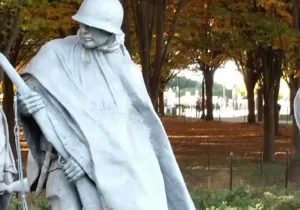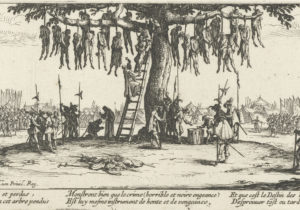Denouncing “Christian nationalism” has become de rigueur of late. Almost nobody identifies as a Christian nationalist. It’s almost entirely a form of derision aimed mostly at conservative Evangelicals who supposedly conflate God with country.
The allegation may be true for some and perhaps true partly for many. Nearly everyone at times conflates their own passions, personal and social, with God’s purposes. But most critiques of Christian nationalism seem sweepingly to deride all reference to God relating to country.
Supposedly “Christian nationalism” is a development of contemporary USA Evangelicalism. But most of what falls under this condemned category dates to historic Mainline Protestantism, which comfortably deployed God and country parlance until relatively recently. Some quarters of it still do.
I was reminded about the Mainline Protestant origins of God and country assumptions when recently discovering the 1906 Memorial Day sermon to Civil War Union veterans by the Indiana Methodist pastor who at about this time married my great grandparents.
With the American flag on the rostrum, Rev. Alfred Pitkin spoke of Memorial Day as our “National Sabbath” on which three national brotherhoods were honored: a “Brotherhood of Sorrow,” “Brotherhood of the Flag,” and “Brotherhood of Service.” Memorial Days was permanently stamped on the hearts of the American people as a fitting tribute to those who fought to keep the country under one flag, he said.
Pitkin honored the brotherhood of sorrow among those whose family members had left for war never to return, having died in service to the Union. The brotherhood of the flag existed among the veterans who fought not for “greed” or “spoils” but for “pure love of country.”
“America has never had such a coin in her treasury as the patriotism of her people,” Pitkin said. The Union soldiers gave their lives for their enemies so that the South might prosper as did the North, he said, “to establish a sisterhood of states and a brotherhood of man.”
Comparing the slain soldiers to Christ, Pitkin said: “It is always the Good Shepherd who lays down his life for His sheep. And the power to suffer is measured by the power to love as the capacity to love is measured by the capacity to suffer. The perfection of character can never be gained except through suffering.”
Pitkin continued:
The pathway from barbarism to civilization, the pathway from savagery to Christianity, the pathway from crudeness to beauty and power, and the pathway from feudal Europe to our country has been through the depths of suffering and it has been the appointed and anointed of God who have walked through this suffering and have brought forth the results which we may see.
Rev. Pitkin recalled a sailor who described the United States as bounded on the north by the Aurora Borealis, on the east by the rising sun, on the south by the procession of the equinoxes and in the west by the Day of Judgement. He told the veterans that as they had been soldiers for freedom so they should be soldiers for the “cause of Christ” where a greater reward than that wrought by any human agency awaited them who “fought the good fight and kept the faith.”
Of course, Methodist cleric Rev. Pitkin would today be derided as an arch Christian nationalist who conflates the American Republic with God’s Kingdom. But actually, he carefully did not conflate. He compares justice in the earthly kingdom with the penultimate of the highest Kingdom. He analogizes the best of America when sacrificial and just with Christian aspirations. He sees God present in and working through America but does not assume that God is confined to America’s purposes. Pitkin commends his veteran audience for their sacrifices, which are noble but do not of themselves suffice. So he summons them to a higher calling, the “cause of Christ,” whose sacrifice surpasses their own.
In his sermon, Pitkin identifies to the veterans a sacred purpose for the carnage that they endured in which 700,000 died, or the equivalent to 7 million in today’s American population, along with hundreds of thousands of others who lost limbs, were otherwise crippled physically or mentally, not to mention millions more who were parents, wives, children, siblings or friends to those who died. God is sovereign, he says, and He redeems what is horrible in our fallen world.
Many of todays’ critics of what they dismiss as “Christian nationalism” seem at best uncomfortable with admitting any ongoing divine concern with the communal lives of nations. Perhaps part of the fault is a certain ultra-Protestant individualism that stresses personal salvation and the communal life of churches but is loath to see God’s wider actions among humanity.
So-called Christian nationalists may sometimes err in making the nation too central to their understanding of God’s work on earth. But many of their critics also err in assuming divine indifference if not hostility to nations. Rev. Pitkin metaphorically alluded to America’s western horizon as the Day of Judgement.
This vision imagines America has purpose and a destination that should inspire sobriety and determination for righteous directions. It sees redemption through sacrifice, not self-indulgence. Should not all nations and human communities hear this warning and cause for hope that a just God will ultimately impose His will over all peoples?
Maybe Christian nationalism should not so much be the target for obsessive critique but rather the pervasive assumption across the spectrum that we individually and nationally should attain our desires without sacrifice and without love for our enemies.






